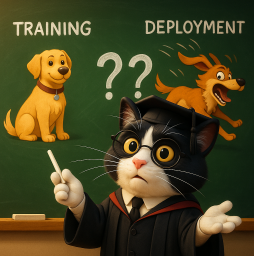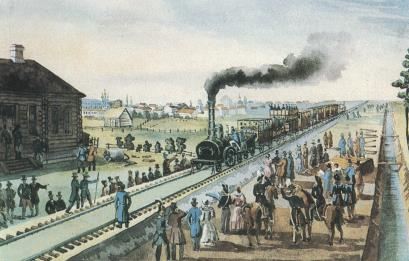
AI Safety IV: Sparks of Misalignment
This is the last, fourth post in our series...
What role should standards play in the development of the Metaverse? That’s the question we’ll be tackling at our upcoming panel discussion, “Technical Standards for the MetaVerse” as part of the MetaBeat event taking place online and in San Francisco on October 4, 2022. Synthesis AI CEO and founder Yashar Behadi will be joined onstage by Rev Labaredian, NVIDIA; Neil Trevitt, Khronos Group; and Javier Bello Ruiz, IMVERSE. Dean Takahashi, lead writer for GamesBeat, moderates.

History is littered with examples of how lack of standardization has led to negative outcomes for companies, governments, and consumers alike, but there are a handful of examples of industry learning from past mistakes. For much of its early development, the railway industry was hampered by competing ideas of “correct” rail gauges, railroad switch locations, and even the height of overhead wires. A century later the aerospace industry, seeking to avoid the inefficiencies of its transportation forebears, pioneered the use of standardized technical documents as early as 1956, when the Air Transport Association introduced a classification system called ATA100, a common referencing standard for commercial aviation documentation.
More recently in 1994 the World Wide Web Consortium (W3C) was founded by Tim Berners-Lee at MIT to foster interoperability and compatibility among industry participants in the adoption of new standards for the Open Web, including HTML; the organization remains vital, active and relevant to this day.
With the Metaverse in its infancy, industry participants are looking to more-recent examples for what works – and what doesn’t – with standardization across definitions, specifications, test methods, and operating procedures in software development. Here at Synthesis AI, we’re working with our customers on a common framework for using synthetic data alongside real data to train ML models for Metaverse use cases. In the Metaverse, it’s critical that different developers have a shared understanding of 3D space, objects in a virtual environment, and how lighting and materials affect character and scenario interactions. We’re looking forward to working with the Metaverse Standards Forum and member organizations like Adobe, Epic Games, and Microsoft to help lay the technical foundation for virtual worlds built on safety, privacy, and shared success.
The best standards cross domains, but aren’t so broad that they become useless, and there’s a great deal of recent history with 3D on the Web that we can all learn from. Please join us and other Metaverse industry leaders for what’s shaping up to be a highly informative and spirited conversation about technical standards for the Metaverse, and stop by our booth to share your thoughts and learn more about the Synthesis AI data generation platform. Register for the conference here, and get a complimentary in-person pass by using the promo code MBDEMO. #metabeat #VentureBeat #MetaBeat #syntheticdata
